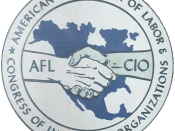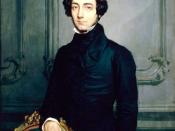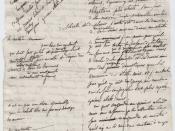INTRODUCTION TO THE WORLD OF INTEREST GROUPS
An interest group is an organised group of individuals sharing common objectives who actively attempt to influence policymakers in all three branches of the government and at all levels. There are five types of interest group in America today; economic, public interest, attitudinal, sectional and intergovernmental.
The interest group in America has been in existence for some time. The French political observer Alexis De Tocqueville described in 1835 how Americans had a tendency to form associations. He also stated: 'They have perfected the art of pursuing in common the object of their common desires. No other country in the world has the principle of association been more successfully used or applied to a greater multitude of objectives than in America.'
The constitution states that 'Congress should make no law respecting an establishment of religion, or prohibiting the free exercise thereof; or abridging the freedom of speech, or of the press; or the right of the people peaceably to assemble, and to petition the Government for redress of grievances'.
Hence giving Americans the constitutional right to form and join interest groups.
Today lobbying refers to all of the attempts by organisations or individuals to influence the passage, defeat, or contents of legislation or to influence the administrative decisions of the government. The term lobbying arose because, traditionally, individuals and groups interested in influencing government policy would gather in the foyer, or lobby, of the legislature to corner legislators and express their concerns. A lobbyist is an individual who handles a particular interest group's lobbying efforts. Most of the larger interest groups have lobbyists in Washington, D,C. These lobbyists often include former members of Congress or former employees of executive bureaucracies who are experienced in the methods of public influence and who know government officials.


